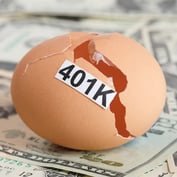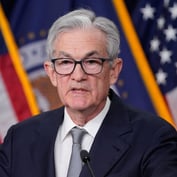Although the recent coup d’etat that took place in Thailand had no material impact on financial markets, investors are nevertheless watching the situation closely, hoping that this time, too, Thailand will quickly get back on track for longer-term stability.
Thailand is no stranger to coups: This latest is the 12th one since the 1930s (not counting seven attempted coups), and yet the Thai stock market and the Thai currency barely reacted at all to the military takeover, said Aaron Visse, who manages the Forward Global Infrastructure Fund, which invests in Thailand.
That’s partly because no coup thus far has derailed the Thai economy in any way, Visse said, and this time around, investors are just relieved to see some stability in Thailand after several months of widespread protests and deep political tension.
“In the short-term, this turn of events is positive for bringing about some stability, and hopefully they can get back on track quickly for the longer-term,” Visse said.
All the same, investors have been watching Thailand and the unrest on the streets of Bangkok, the Thai capital, and elsewhere in the country in the months leading up to the coup had increased their caution vis-à-vis Thailand, said Rajeev De Mello, head of Asian fixed income at Schroders in Singapore.
Many trimmed their exposure to Thailand but now, “because positions are small, there is no rush for an exit,” De Mello said.
Investors aren’t especially worried about the situation because the Thai economy, which attracts a large amount of foreign direct investment and rakes in revenues from tourism, is in good shape continuing to give them confidence.
“Imports have declined and exports are stable, so the trade position has moved back into a surplus, which is supportive for the currency,” De Mello said. “Thailand also has $160 billion in foreign currency reserves, which gives policy makers the credibility to counter large currency movements.”
Thailand is also a successful exporter and inflation has remained low. The Thai Central Bank is a very credible institution, De Mello said, and government bonds have done very well, returning 3.5% year-to-date, which is the third highest after Indonesia and India. Although the economy had experienced some setback as a result of the political tension, “bonds are buoyed by the weak growth, low inflation, low policy rates and lower level of government issuance,” he said.








 June 02, 2014 at 09:20 PM
June 02, 2014 at 09:20 PM










